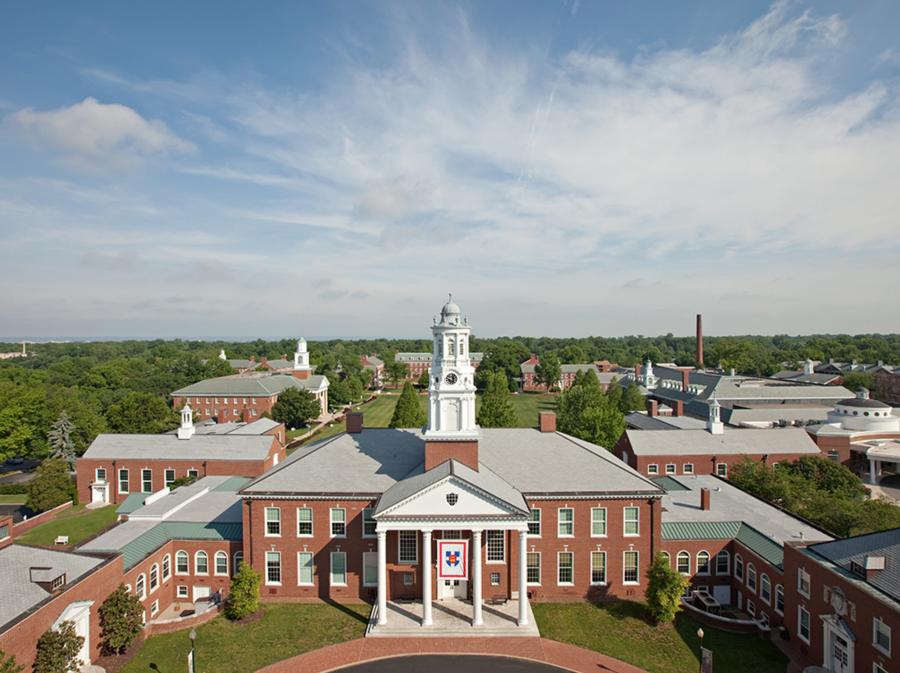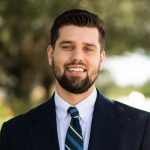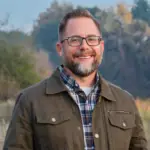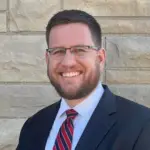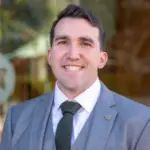Dwight Mckissic recently presented to the trustees and president of the Southern Baptist Theological Seminary an open letter. Since it was an open letter, I assume he wanted all Southern Baptists, and others, to know the nature of his specific request. Also, I assume he is open to response from fellow Southern Baptists. Pastor McKissic carries strong convictions accompanied by the practical implication that if the conviction is worth holding then it is worth stating publicly and pressing for action. By the same token and in the same spirit, I believe he is calling for something that is wrong, undesirable, and impossible. I believe, therefore, I speak.
At the Southern Baptist Convention in June 2019 in Birmingham, he and I in the company of our wives enjoyed a meal together filled with encouraging and edifying conversation. At that time, he was interested in the perspectives on church history that I had developed through over forty years of teaching and, in fact, requested my instruction notes on certain aspects of my class content. I sent the material to him the very next week. Of course, I have no official standing related to this request in the open letter. I give an opinion as a Southern Baptist and a historian who has invested much time in teaching the intricacies of God’s operations in history, particularly in the Southern Baptist Convention. I also have invested a good bit of affection in The Southern Baptist Theological Seminary and its founders as well as our other seminaries and the obvious impact that Boyce’s vision had on them. In light of that personal background, the specific call of his open letter, the conversation we had, and his apparent interest in my perspective, I present this open response.
“The purpose of this correspondence,” writes Dwight McKissic, “is to humbly and respectfully request that the President and Board of Trustees at SBTS remove from SBTS campus, any memorabilia of the founders: James Pettigru [sic] Boyce, John Broadus, Basil Manly, and William Williams.” The author, courageous and assertive in his convictions, is, at the same time, both humble and respectful. He sets forth a sober request to dissociate the Southern Baptist Theological Seminary from any of the names of the people who originally founded it. Because they were antebellum slave owners, and thus, ostensibly, post-bellum white supremacists, it naturally follows that they were heretics. They were lawless, so the reasoning goes, and, therefore, godless, and thus necessarily heretical, because they thrived on another generation’s and another culture’s man-stealing.
The reasoning, however, might not be quite that facile. Together, we agree that the Bible reprobates man-stealing (1 Timothy 1:10; Exodus 21:16). We also would agree that freedom is superior as a temporal condition to slavery and should be achieved when a lawful opportunity arises (1 Corinthians 7:21). We also would agree with Broadus, with awe-inspiring wonder at God’s providence, that the Civil War, even at the cost of a half-million lives, determined that America was a place where a lawful path to productive freedom was open to all persons.
Believing Paul’s argument, we would agree that eternal redemption by Christ and eternal ownership of all we are by Christ is infinitely superior to any earthly condition, whether slave or free. Redemption is both freeing and captivating. “For he who was called in the Lord while a slave, is the Lord’s freedman; likewise, he who was called while free, is Christ’s slave” (1 Corinthians 7:22). We also, as believers in biblical infallibility and in the revelatory ministry of the apostles would see a clear pattern of relationship between slave and master in both the Petrine and the Pauline material. Slaves were to do their service gladly to their masters, even to those who were harsh, embracing the opportunity for sanctification and for emulation of Christ. They were to consider that their work transcended a merely earthly task and was done as unto the Lord. In their faithful service, considering their master as worthy of “all honor,” they would adorn gospel doctrine. Slaves should serve believing masters with good will toward the prospering and well-being of the master. The bond-servant would be rewarded by God for faithful service or would be judged by him impartially for wrongdoing. Masters must not threaten or be harsh, must provide for their bondservants in a just and fair way, and consider releasing those so gifted for service in gospel ministry. Masters, like slaves, will be judged according to an absolute standard of justice. They were to consider one another, even in this relationship of slave and master, as beloved because graciously and eternally loved by God and as brothers because of having received the Spirit of adoption whereby both cry “Abba, Father.” (Galatians 3:26-4:7; Ephesians 6:5-9; Colossians 3:22 – 4:1; 1 Timothy 6:1, 2; Titus 2:9, 10; Philemon 10-20).
Given these scriptural connections between slave and master by the apostles, how should we consider ante-bellum Christians who were slave owners as they viewed these apostolic instructions? If they knew that abuses plagued the system, but sought to work to correct those abuses, is it legitimate to place them within the category of heretics? Probably at this point, Pastor McKissic and I would find disagreement. I would say, “No,’” and he already has said, “Yes.” We disagree, therefore, on how the Bible presents the fitting response of Christians as they found themselves in an existing slave/master relationship.
Although Boyce recognized abuses were present and should be corrected, advocated missions among the slaves, encouraged plantation owners to hire religious instructors for their servants, gave earnest attention to the needs of his servants including his help in arranging their finances, was appreciatively sought after by them even after emancipation, and sought to provide for them a means for their success in their newly granted independence, we are told that his character and doctrine should be held under suspicion even to the point of being declared a heretic.
This sort of perception is disturbing and seems not to accord with the broader reality of the initial faculty’s most enduring impact. The discussion of Boyce’s theology and the contribution that he and his colleagues made to a continuing Baptist witness for the truth should rise above the ante-bellum and Confederate disputes over slavery. Its residual effects gradually, and too slowly, have been ameliorated and, from the standpoint of developments over the duration of a century and a half, we have a much deeper perception of and joy in the unity of all men in creation and their relation to Adam, God’s wisdom in providence, and the inclusion of people from all nations in the covenant of redemption. The elimination of slavery by the Emancipation Proclamation and the South’s defeat in the Civil War, did not change the theology of Boyce and the seminary cohort in any of these truths of revelation. All of this confirms the vital importance of the transcendent, trans-historical, trans-cultural, trans-temporal blessing of revealed truth. All improvement in these matters, in fact, depends on it. For the manner in which these blessings of grace were embraced, articulated, and transferred to succeeding generations, we should let our gratitude smother our suspicion.
For the open letter to accomplish its intent, its request is much too mild. It has to be more aggressive and purposely and strategically destructive. Removing names is an inadequate approach. When such a request is made, one must realize how deeply entwined is the very soul of the founders in the ongoing ministry of the school. One has to grasp the seismic shifts, or perhaps the implantation of immovable pillars, made in denominational identity and theological perpetuity in the establishing of the institution itself.
The real memorabilia are not names and shields but abiding principles—really substantial doctrinal convictions and biblically-grounded theories of ministry that permeated the institution with renewable energy from its first existence in documents to its reification in buildings, classrooms, students, and faculty. That which must be done is to remove the very roots of the school from its organized structure in the mind of Boyce. Among the greatest of the memorabilia that marks the school is Boyce’s speech on “Three Changes in Theological Institutions.”[1] One of the convictions driving that document was provision for an abundant ministry. Theological and biblical education, therefore, must make provision for the training of those who have only a “plain English education.” Boyce’s innovative idea was the development of a track that puts these students into a position of essential theological training more quickly. Boyce College is organized academically to meet that principle envisioned by Boyce. Should the trustees and the administration be willing to comply with the request of the open letter, the elimination of this element of the memorabilia would pose a virtually insuperable difficulty.
The idea that Southern Baptists should provide doctoral studies beyond the basic theological degree also is an innovation of Boyce. Along with an extended acquaintance with the entire theological and practical spectrum in divinity (the M Div), theological education among Baptists must provide for itself qualified teachers. It had been a “sore evil” with devastating consequences “to depend upon works, in which much of error has been mingled with truth, owing to the defective standpoint occupied by their authors.” Boyce proposed an advanced course of study to prepare Baptist scholars both for teaching and for scholarly interaction with the broader Christian community in the defense and propagation of the Baptist understanding of comprehensive Christian truth. He wanted an intensified course that “would bestow accurate scholarship, train the student in the methods of original investigation, give him confidence in the results previously attained, and open to him resources from which he might draw extensively in interpreting the Scriptures and in setting forth the truths they contain.” He envisioned a result of a “band of scholars” from whom the denomination “might expect valuable contributions to our Theological literature.” To eliminate the memorabilia of the founding faculty, one must eliminate the Ph D studies program at SBTS. That would be a bold and brave separation from the vision of Boyce. We will make no speculation of what should become of those who have received degrees in that graduate program.
And the securing of the theological fidelity of the school by a confession of faith!–vintage Boyce. His doctrinal and historical arguments for the validity of such an instrument and his tenacity in seeing it through until the Abstract of Principles was completed and signed by the first four professors substantially constitutes the very existence of the Seminary. He was not advocating for the mere acceptance of the same canon of Scripture, but for an assent and consent “to the truths which he knows to be taught therein. It is not whether they believe the Bible, but whether believing it they deduce from it such doctrine as shows, according to the judgment of the Christian, that they have been so taught by the Spirit of God as to be guided into the knowledge of all truth.” His vision for the protection and perpetuity of the revealed truth embraced within the Abstract were solidified with the words in a preamble: “Every professor of the institution shall be a member of a regular Baptist Church; and all persons accepting professorships in this Seminary shall be considered, by such acceptance, as engaging to teach in accordance with, and not contrary to, the Abstract of Principles hereinafter laid down, a departure from which principles on his part shall be grounds for his resignation or removal by the Trustees.” That is the true identifying fingerprint of Boyce on every professor and thus the ongoing influence of the seminary. To hide Boyce from view, one must hide the Abstract from use.
Names also are specifically associated with this document. The first four are of Boyce, Broadus, Manly, Jr., and Williams. If the document were eliminated, the names pose no problem. Any scheme to eliminate those signatures while maintaining the document would pose a great difficulty. First, the historical integrity of the document would be negated. Second, the initial witness to the theologicalmeaning and integrity of the document would be eliminated. Those called on to concede to this request, short of a blatant erasure of names, would be seeking to find a concession beyond wisdom and rationality.
Just erasing their names is not the substantial issue; the call implies an elimination of the document itself and the ongoing theological persuasion that has constituted the very existence of SBTS as a witness to revelatory truth. It smells too much of the Reformed persuasion of Boyce to escape recognizing his influence. The confession exhales his commitment to Scripture, the Trinity, election, the atoning work of Christ, justification by faith, sanctification. and a Baptist church polity. Is it possible to pry from the fabric of the confession those remnants of Boyce’s purpose for the school?
What would we substitute? I don’t suggest that Pastor McKissic would want to opt for Walter Rauschenbusch’s A Theology for the Social Gospel or the confession of faith of Shailer Mathews in The Faith of Modernism. Both dismiss virtually every vestige of orthodoxy under the assault of modernism. They substitute for the revelatory doctrinal foundation of Christianity a social activism that they consider as more consistent with the ethic of Christ than any doctrines about his person or his death and resurrection. They believe that a particular view of social ethics is more important than historic orthodoxy and defined true Christian work in those terms. Sometimes it seems that our own age is enmeshed in a social gospel without the explicit liberalism. Pastor McKissic endorses biblical orthodoxy and believes that it is important for a truly Christian ministry. It seems, however, that when he reads it in the words of Boyce, the truths lose their intrinsic beauty. When he sees the historic confessional affirmations of Boyce, Manly, Broadus, and Williams, he sees a mere veil hiding the real issue of racism.
I could wish that all Christians cultivated a deep sense of gratitude for the grace of divine revelation and its message of eternal redemption through the blood of Jesus Christ. If we see that we are united in the substance of truth, call on the name of the same Lord, then gratitude for agreement in the substance would overcome disdain for names. Rather than depicting them as enemies, we should be united with each other and with them in the common gospel and biblical truth within which we find our common hope as “beloved and as brothers.” How ironic that we would consider their supposed wrongdoing as having such residual effects that we would reprobate them as heretics, while forgetting the residual effects of living orthodoxy that was the means of converting sinners and reclaimed a school and a convention from real heresy. How puzzling that we would not unite with them or even grant to them the grace of the apostolic admonition: “Let all bitterness, wrath, anger, clamor, and evil speaking be put away from you, with all malice. And be kind to one another, tenderhearted, forgiving one another, even as God in Christ forgave you” (Ephesians 4:31, 32).
Should gratitude, brotherhood, and forgiveness fail, however, and the Abstract be submitted to the knife and the flames, another deeply embedded documentary testimony remains. The library named for Boyce must not only have its name changed, but the large collection of books left by Boyce must be isolated and eliminated. A severe disinfecting of the archives with so much correspondence between Boyce and a variety of laymen, theologians, biblical scholars, friends, and family should be attempted. This material must be hidden away until the sting of his name has been diminished by time and he has been successfully catalogued as a mere historical curiosity. Even at that, it is probable that the lingering aroma of Boyce will be discerned.
Still, however, if dismissing the Abstract and purging the archives were seen as steps in the right direction, we are only looking at drapery–very important drapery that gives beauty, formation, and identity. But as long as the school itself as defined by the Abstract stands, someone, somewhere, sometime is going to point out that it exists as a result of the vision, industry, foresight, and sacrifice of James P. Boyce whose stirring commitment tied to his cause John A. Broadus, Basil Manly, Jr., and William Williams. In the interests of removing all memorabilia, is it implied that the school must perish? He does not want that, I imagine, but it is the most prominent and enduring piece of memorabilia. In order not to be tainted by the impact of Boyce, should we raze it like Jericho and warn against restoring its gates?
Perhaps someone also should be hired to do a redaction of Boyce’s Abstract of Systematic Theology and point out that it is really, not a plain Bible-centered development of the doctrines of divine revelation in service of the glory of Christ and gospel truth, but actually a clandestine defense of the Lost Cause and a manifesto of White Supremacy. Some contemporaries argue that Reformation theology and the process of rational synthesis to produce systematic theology is the product of the western European mind, unnatural for the mindset of other cultures, and, therefore, implicitly racist. When Boyce sets out the method of his deducing doctrine from Scripture, should we suspect it as a method that incites heresy. Boyce wrote “It is our duty, there, (1.) to seek to learn all the facts made known by reason and revelation, (2.) to accept them, (3.) to recognize them as the testimony of God, (4.) to admit that our knowledge is still imperfect, (5.) to believe that further information will still further remove the difficulties, (6.) to refuse on account of the difficulties to reject what God has actually taught, and (7.) amid all, to believe that whatever that teaching is, it must accord with justice, wisdom and holy perfection, because it is God of whom these things are affirmed.”[2]
All of this appears to be respectful of divine revelation, and a solid method to deduce from all of Scripture the various doctrines that are contained in it. The open letter, however, is concerned that the seminary’s founding was actually done by heretics under the guise of clearly professed orthodoxy and responsible biblical exegesis. But, to embrace the imputation of heresy to Boyce, the clear presentations of Boyce must be rejected, for their ostensible intent hides a serious departure from divine revelation. Any method of theology, therefore, consistent with that proposed by Boyce must be suspected of implicit racism, assigned to uselessness, for it is a surreptitious manifesto for heresy.
So, perhaps the deeper application of the request goes beyond the mere removal of names. That is superficial, and the author is not a superficial person. The true memorabilia are the institution and the doctrinal safeguard that gives it abiding and faithful Christian relevance. Not intentionally, but in effect, he would instruct us to challenge and doubt the sincerity of the substance of what appeared to have captured the affections of these men–the glory of God in the face of Jesus Christ, the maintenance of a historic Baptist Reformed orthodoxy, and a setting where God-called men could receive sound training in all that constitutes gospel ministry.
[1] See Thomas J. Nettles, Stray Recollections, Short Articles, and Public Orations of James P. Boyce (Cape Coral, FL: Founders Press, 2009), 61-106.
[2] James Petigru Boyce, Abstract of Systematic Theology (Cape Coral, FL: Founders Press, 2006 [first published 1887]), 115.













